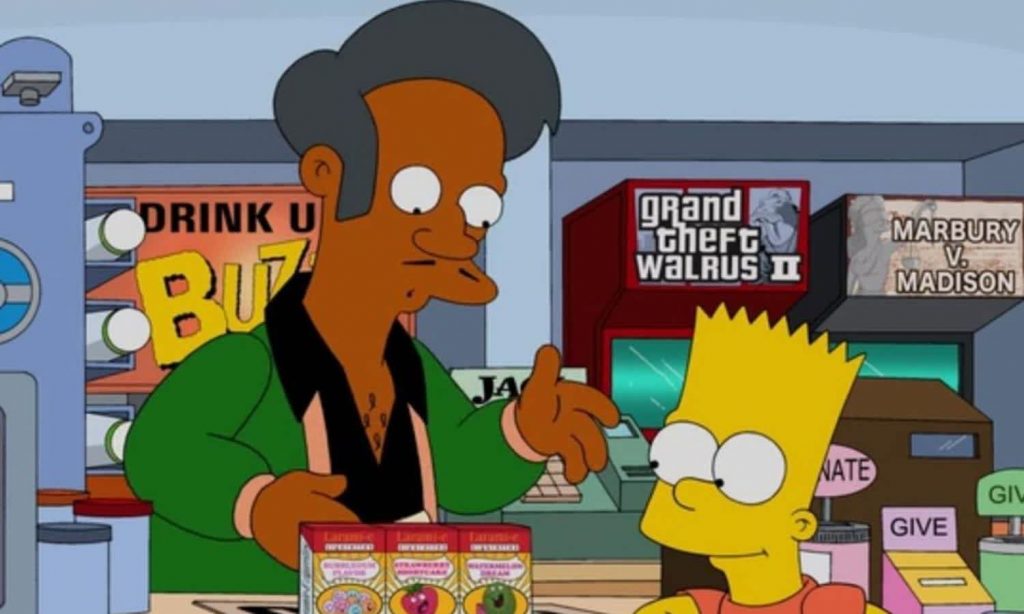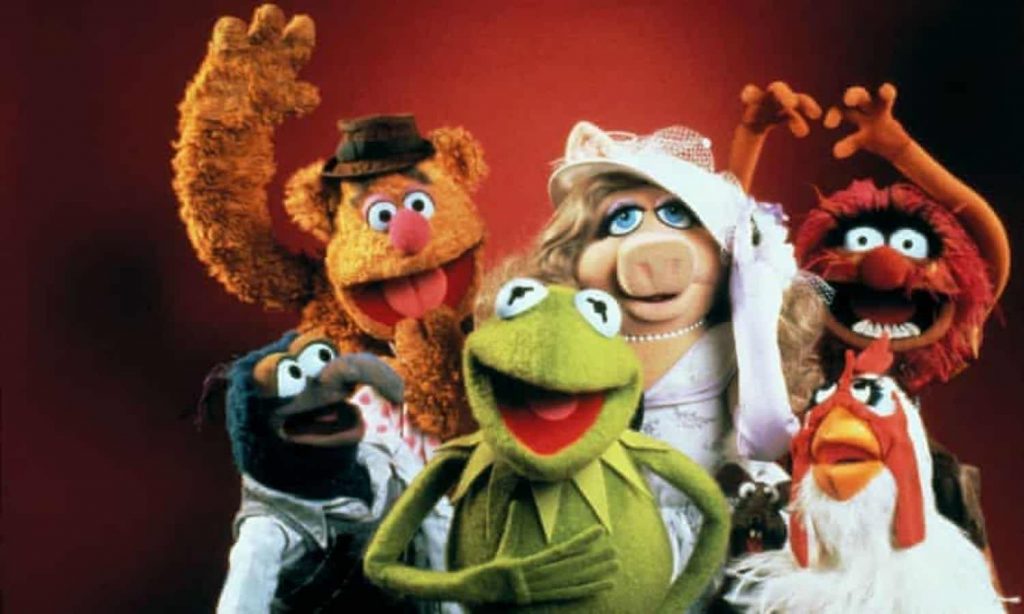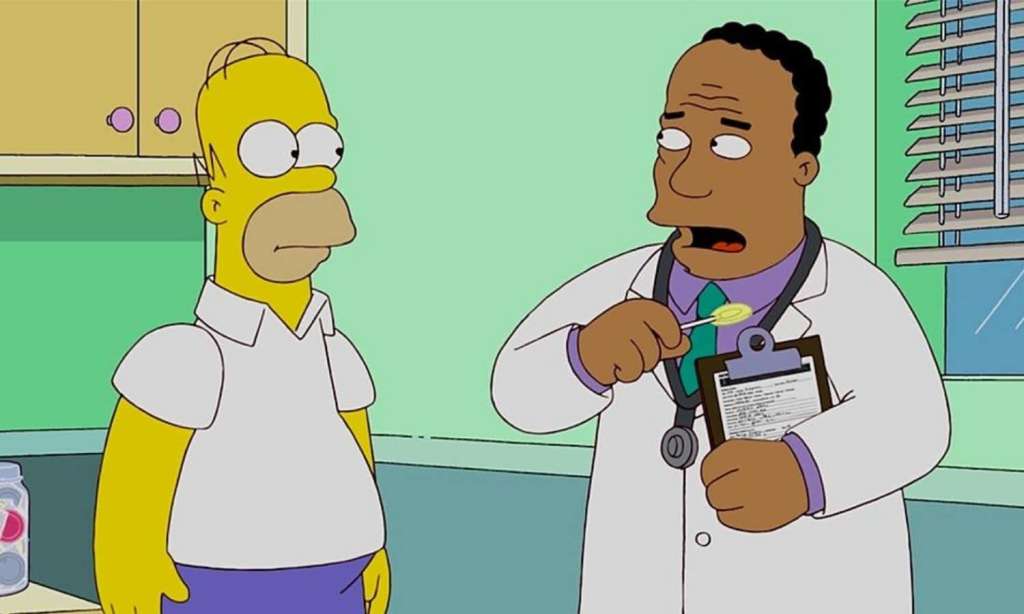In a rare interview, The Simpsons creator Matt Groening has addressed the controversy surrounding his long-running animated sitcom in which people have complained that white actors have been used to voice characters of colour.
In September 2020, it was announced that the character of Carl Carlson, Homer’s friend from the Springfield Nuclear Power Plant, would be recast after thirty years. The character was originally voiced by Hank Azaria who stepped down so that African American actor Alex Désert could take over the role.
Another of Azaria’s characters, Kwik-E-Mart owner Apu Nahasapeemapetilon, also faced widespread criticism which led to the announcement that he too would be recast. The character was the subject of a 2017 documentary called The Problem With Apu, in which comic Hari Kondabolu interviewed other actors and comics of South Asian heritage about the impact that the character of Apu had on their lives and the perception of South Asians in American culture.
Speaking recently on Dax Shepard’s podcast Armchair Expert, Azaria revealed that he’s still grappling with the character’s potentially damaging legacy.
“I was speaking at my son’s school, I was talking to the Indian kids there because I wanted to get their input,” Azaria said. “A 17-year-old … he’s never even seen The Simpsons but knows what Apu means. It’s practically a slur at this point. All he knows is that is how his people are thought of and represented to many people in this country.”
Azaria went on to explain that the young boy, asked him to tell Hollywood writers what they do matters and has ramifications on people’s lives.
“Part of me feels like I need to go to every single Indian person in this country and personally apologize,” Azaria told Shepard.
“And sometimes I do.”
Following the most recent news that Harry Shearer would no longer voice the character of Dr Hibbert — which will now be voiced by Kevin Michael Richardson — Groening shared his thoughts with the BBC saying that historically, he hadn’t seen the need to recast.
“Times change, but I actually didn’t have a problem with the way we were doing it,” he said. “All of our actors play dozens of characters each, it was never designed to exclude anyone.”
Referring to the show’s response to the Apu controversy which was widely regarded to be dismissive, Groening said, “At a certain point it doesn’t matter what you say. You’re going to be attacked by whoever, you know? We’re not going out of our way to comfort bigots. On the other hand, if you do any kind of gesture and people perceive a weakness, you’ll be criticised.”
Overall, however, Groening agrees that an industry wide change is needed, acknowledging that,
“Bigotry and racism are still an incredible problem and it’s good to finally go for more equality and representation.”

Groening’s conversation with the BBC comes after streaming platform Disney Plus announced it would be adding a content disclaimer to 18 episodes of The Muppet Show.
Reads the disclaimer, “This program includes negative depictions and/or mistreatment of people or cultures. These stereotypes were wrong then and are wrong now. Rather than remove this content, we want to acknowledge its harmful impact, learn from it and spark conversation to create a more inclusive future together.”
The reason for the need for such a disclaimer varies between episodes — in one, Johnny Cash can be seen singing in front of a confederate flag, for example.
A statement posted to Disney’s website read, “As part of our ongoing commitment to diversity and inclusion, we are in the process of reviewing our library and adding advisories to content that includes negative depictions or mistreatment of people or cultures. Rather than removing this content, we see an opportunity to spark conversation and open dialogue on history that affects us all. We also want to acknowledge that some communities have been erased or forgotten altogether, and we’re committed to giving voice to their stories as well.”

The disclaimer approach has also been taken by American streaming service HBO Max, who in 2020, removed Gone With the Wind from its library due its portrayal and treatment of African American people. When it returns to the platform it will include a “discussion of its historical context and a denouncement of those very depictions.”
Similarly, Netflix Australia removed four of Chris Lilley’s shows for the comedians pervasive use of blackface makeup and Stan banned Little Britain and Come Fly With Me for the same reason.
So what is the right answer when navigating problematic content? If it has already been made, should it be removed? Or in doing that, do we also remove the opportunity for education around such issues? One could argue that without looking back, how are we to know exactly how we can do better.
Is re-casting minority roles the answer; as it not only provides jobs for underrepresented talent, but adds authenticity to the characters we know and love?
Or should we simply continue to screen content that is offensive or erasing to entire communities with the Band Aid of a disclaimer slapped in front of it — a seemingly middle-ground option that checks the box of acknowledgement, but fails to limit the trauma of the people it negatively depicts?
The short answer may well be that it is case-by-case dependent on the content in question and there will probably never be a solution that pleases everyone.
The long answer, surely, is that more opportunities for marginalised people to make content need to be provided to ensure that the stories being told are both authentic and absent of the need for such a debate.
Read more stories from The Latch and subscribe to our email newsletter.







